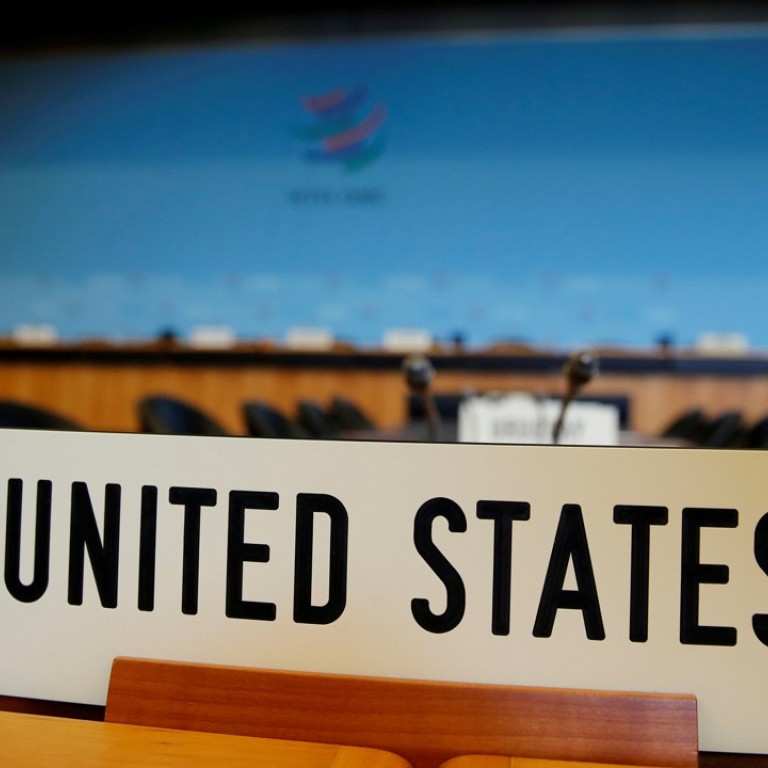
Work with allies to update WTO rules instead of waging solo trade war, former US officials tell Donald Trump
The escalating trade war and new US tariffs on Chinese goods could end up being the catalyst needed for the WTO to modernise
Former senior US trade officials are urging the Trump administration to work with allies to modernise the World Trade Organisation and use the body to resolve its grievances with China, rather than continue its barrage of tariffs that flout WTO rules.
The US-China trade war has seen the WTO largely relegated to the sidelines, with critics contending that a number of its mechanisms are outdated and thus inadequate for dealing with practices involving digital trade and state-led economies – issues core to US claims about China.
“It is time to update it,” former US Trade Representative (USTR) Mickey Kantor said. Kantor, now a partner at the law firm Mayer Brown in Los Angeles, led negotiations during President Bill Clinton’s administration that resulted in the WTO’s founding in 1995.
Watch: Escalating US-China trade war makes European firms nervous
“A lot has changed since then,” said Kantor, who was the US secretary of commerce in 1996-97. “The world has significantly changed the way it operates and communicates.”
Forced technology transfers and market-distorting state subsidies are two modern-day trade practices attributed to China and deemed by many WTO members to be inadequately covered by the body’s rules, which have not undergone a substantive overhaul since the organisation was established.
The past year has seen signs of American willingness to challenge China’s trade practices through changes to the WTO, and high-level talks between the US, Japan and the European Union began in 2017 over a coordinated strategy to counter undue state influence in countries such as China.
In late May in Paris, the three governments’ trade ministers – including USTR Robert Lighthizer – committed to pursuing negotiations for WTO reform by the end of 2018.
This stance was reiterated on Tuesday after another trilateral meeting in New York, where, according to a USTR statement, trade ministers “confirmed their commitment to continue working together to maintain the effectiveness of existing WTO disciplines”.
Such actions are a matter of urgency, said former acting deputy USTR Wendy Cutler, who said at the recent World Economic Forum in Tianjin, China, that the WTO was on the brink of moving from the “sidelines” to the “background”.
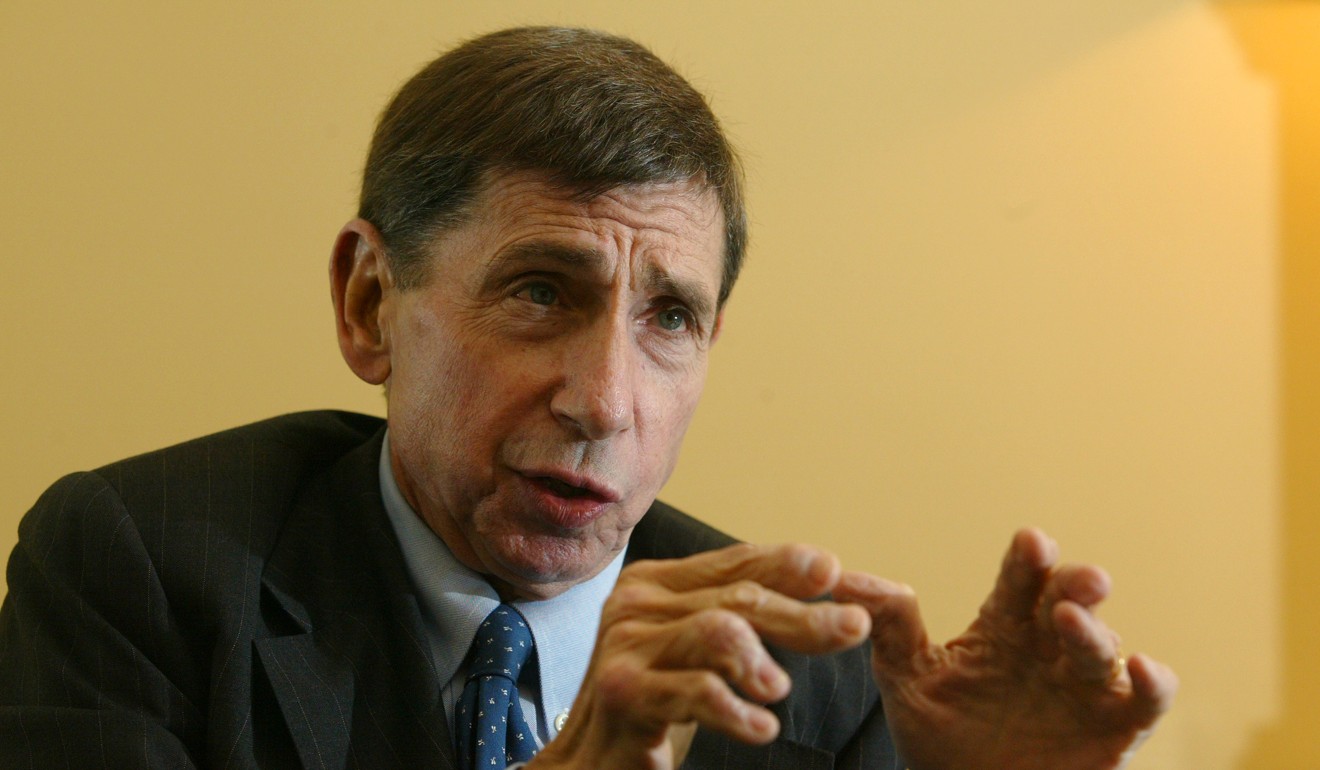
That is dangerous, Cutler said, because it means a country with trade grievances could decide to “take the rules into its own hands and do what it needs to do to achieve its national objectives”.
Such is the case with the US. While talk of modernising the WTO has surfaced from time to time, a full-blown trade war is raging in the foreground, with Washington unleashing a barrage of tariffs on Beijing – tariffs that have, by any measure, run counter to WTO rules, which prohibit unilateral action against other members.
After retaliation by China, Trump has threatened the unprecedented measure of levying tariffs on the entirety of Chinese imports.
The American commitment to the WTO has also been called into question by its continued stalling of appointees to the organisation’s dispute settlement body, which will soon have too few members to operate.
Trump, who told the UN General Assembly on Tuesday that the US rejected “the ideology of globalisation”, has stepped up his rhetoric against the WTO, even threatening in an interview with Bloomberg in late August to withdraw the US from the organisation if it did not “shape up”.
Trump has also directed his ire at his predecessors, accusing them of letting China “[take] advantage of the rules of the WTO”.
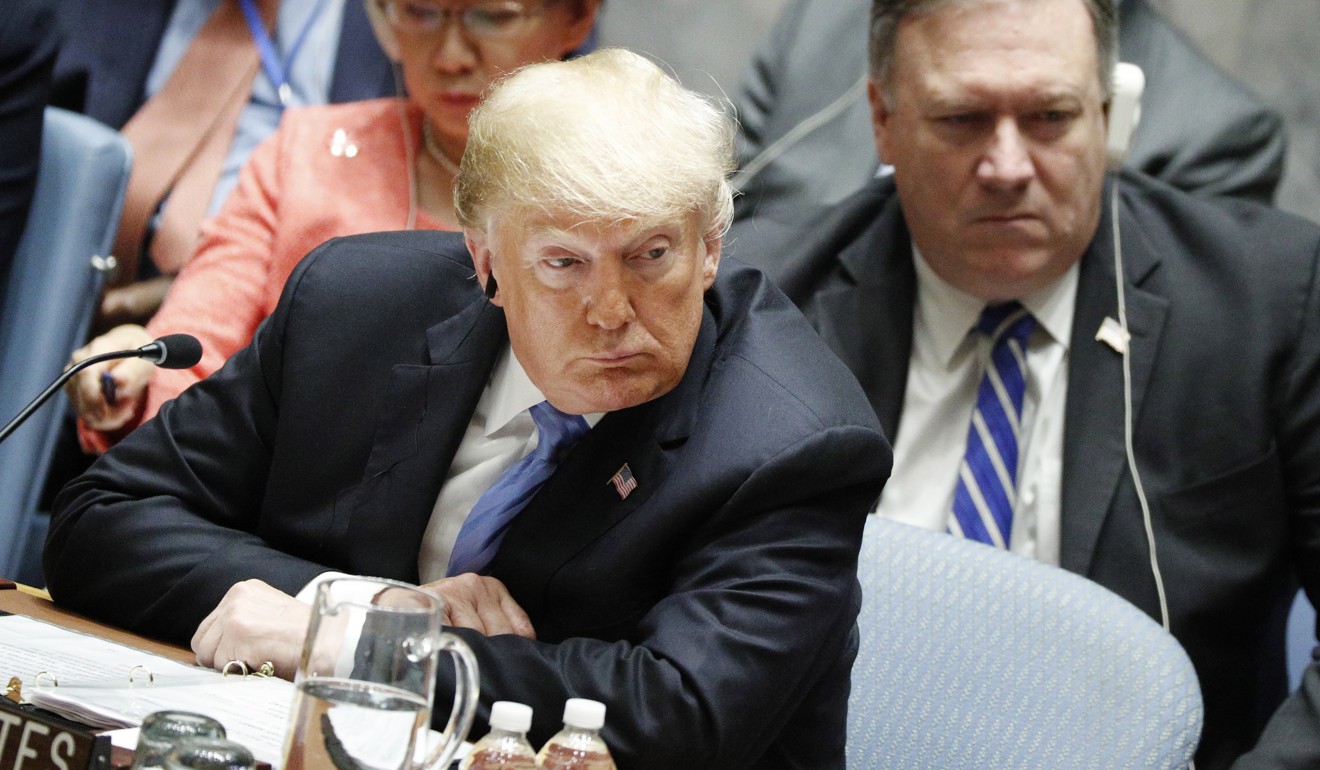
Dorothy Dwoskin, a former assistant USTR who took part in negotiations that led to China’s joining the organisation in 2001, disputed the claim that previous administrations were not committed to holding Beijing to its WTO obligations.
“We all worked pretty hard to get China’s compliance,” said Dwoskin, who served under both Republican and Democratic presidents. “I think that our efforts sometimes fell short, but I don’t think that there was any intention to let them off the hook.”
Kantor, who also rejected Trump’s assertion that previous administrations had turned a blind eye to China’s WTO violations, said he was “stunned by this administration’s position on the WTO”.
The unilateral imposition of trade tariffs on China was “not helpful,” he said, adding that Trump’s threats to withdraw from the WTO would make his administration the first since the second world war to not support a rules-based global trading system.
Nevertheless, Kantor was encouraged by signs of collaboration between the US and other WTO members. It “would be positive if the US cooperated with Japan and the EU in confronting China [to make it] meet some of its obligation”, he said. “I am hopeful that’s the case.”
The office of the USTR did not respond to requests for comment on the status of the administration’s strategy for updating WTO rules.
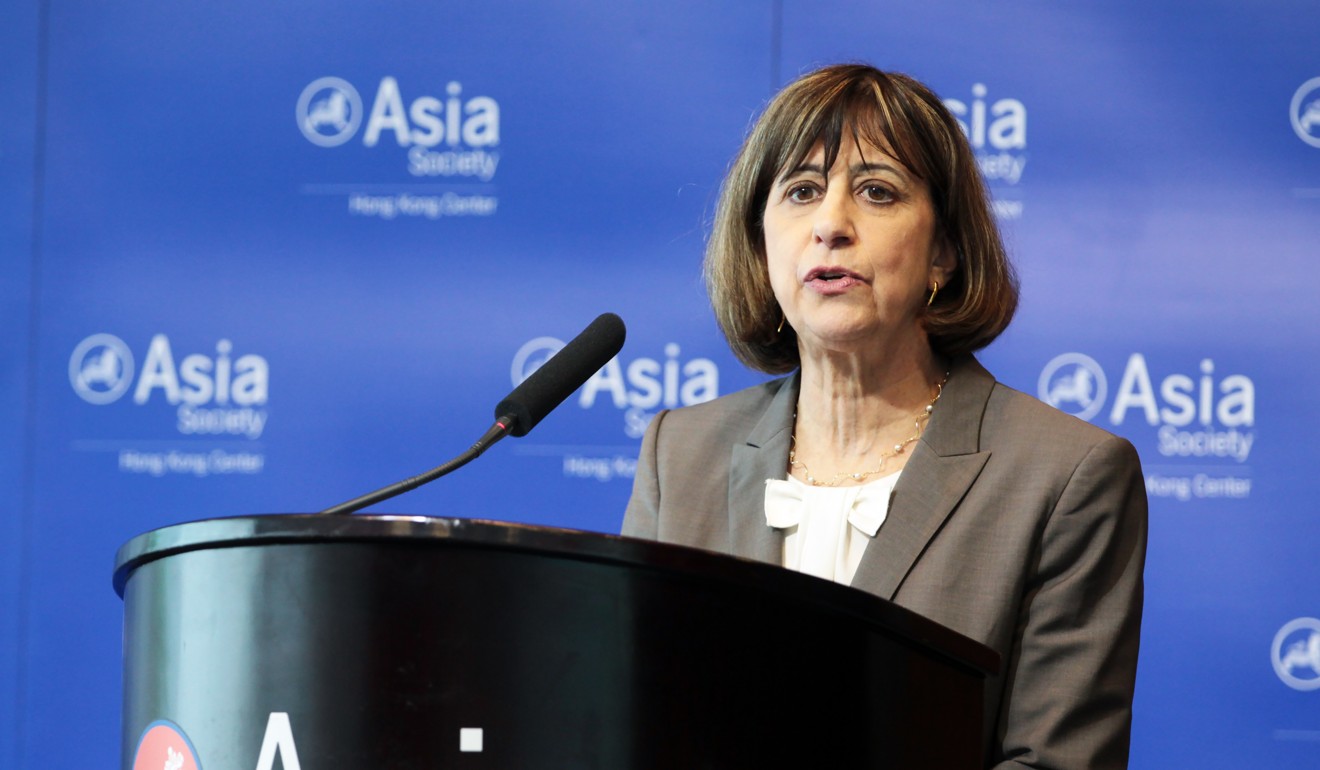
Changes had previously been pursued by the George W. Bush and Barack Obama administrations, and others among the 164 members countries have also called for updates.
Mark Wu, a Harvard Law School professor and former US trade official, said that despite previous US administrations’ complaints, some member countries have been “perfectly happy to let the rules stay as they have been, to the disadvantage or dismay of the US”.
“Obviously this administration is taking a very different tack” to previous administrations, said Wu, who was the USTR director for intellectual property from 2003-04. He currently sits on the advisory board of a WTO programme that promotes the understanding of trade among academics and policymakers in developing countries.
Next week in Geneva, where the organisation is based, Wu will be a panellist at a public WTO event organised by the USTR, Japan and the European Commission to discuss how well the body is equipped to deal with the effects of market-distorting government subsidies.
The event’s title, “Making the Playing Field Level Again!” – borrowing from Trump’s “Make America Great Again” slogan – suggests a keen interest on the part of the USTR to put the spotlight on its grievances with the WTO.
The trade war the US is waging against China could very well be the catalyst required for WTO members to implement changes.
Watch: Former USTRs heap scorn on Trump’s approach to global trade
“With the current crisis over tariffs,” Wu said, “this trilateral effort has taken on increased importance.”
The US has “clearly drawn the attention in Geneva that the WTO risks losing relevance if it sticks to the status quo”, Wu said.
Indeed, concerns about the organisation’s capacity to deal with issues such as state subsidies and intellectual property theft, as well as criticism of its dispute settlement mechanism, “have been raised informally in one manner or another pretty much every day here”, WTO spokesman Keith Rockwell said.
The organisation is not in a position to comment about which areas needed updating, since many of the issues in question are the subject of dispute settlement proceedings, Rockwell said.
“Reform of the WTO is a matter for WTO members,” he said. “Whether or not the current rules are adequate to cover the trading environment of 2018 is for them to determine.”
In the wake of Washington’s unilateral action against China and questions about its commitment to the WTO, the EU has emerged as a vocal proponent of WTO updates.
“Key members are not supporting the system but opening unilateral measures with effects that we unfortunately know too well,” the EU’s commissioner for trade, Cecilia Malmstrom, said on September 18 when presenting the European Commission’s proposals for changes to WTO rules and mechanisms.
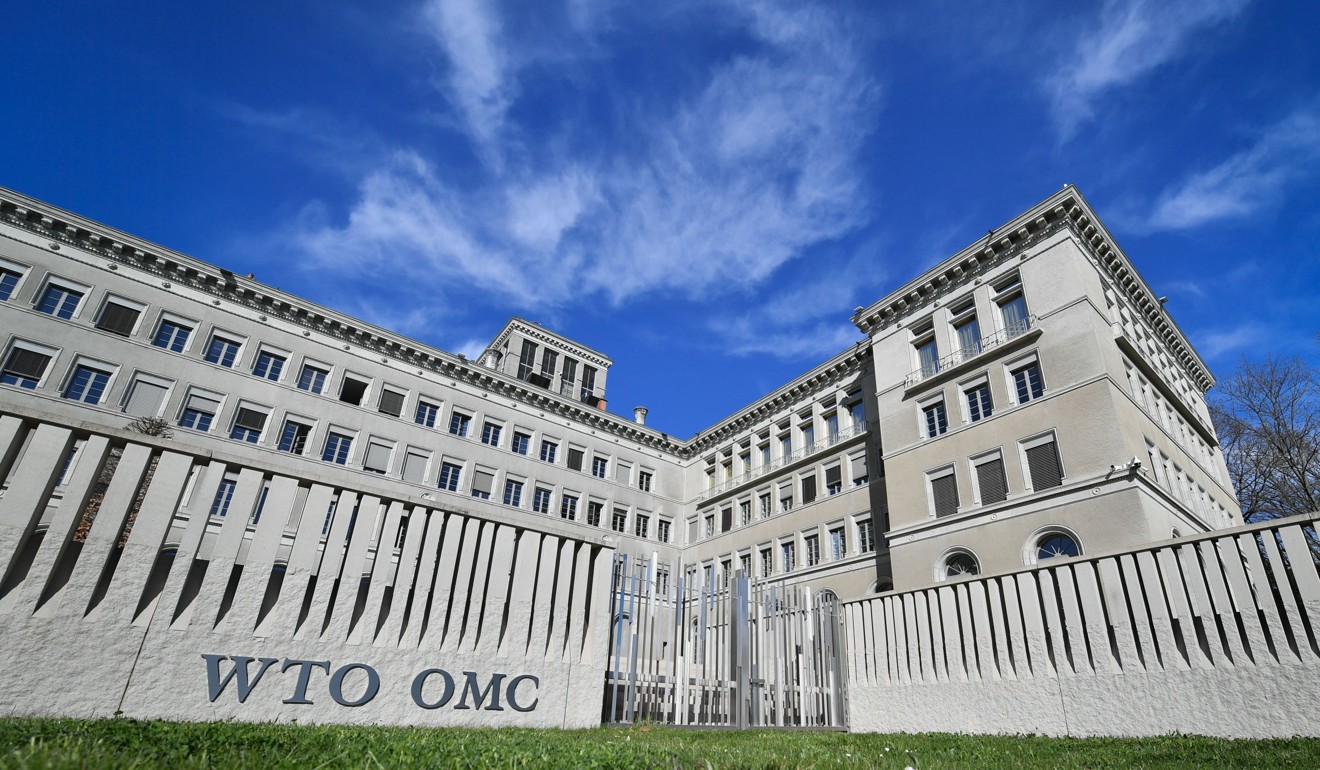
They included increasing transparency surrounding state subsidies, better accounting for the market-distorting effects of state-owned enterprises, and strengthening barriers that prevent forced technology transfers.
“The world has changed; the WTO has not,” she said. “It's high time to act to make the system able to address challenges of the today's global economy and work for everyone again. And the EU must take a lead role in that.”
Formal discussions on WTO modernisation – including the EU’s proposals and previous proclamations by USTR, Japan and EU – have avoided mentioning China by name, but there is little doubt as to their intended target.
“The reform proposals are clearly written with China in mind,” Wu said.
That said, China is not the only member that would be affected by updated rules, Dwoskin said. “There have been issues with other countries in terms of undue influence of the state,” she said. “China’s a big issue, but it’s not just China.”
Keeping this in mind could be crucial to increasing the chance that changes are approved by members of the WTO, which typically requires a majority vote to enact amendments.
“The more you can show somebody that ‘Hey, this is not just a bilateral problem, this is a problem in the system,’” Dwoskin said, “the more effective you can be”.

